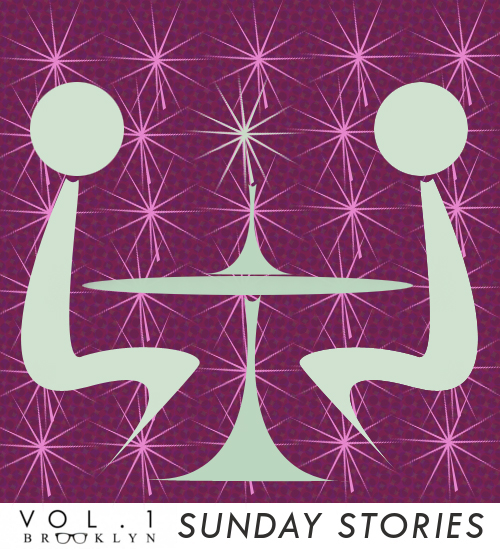Stories by Brennen Wysong
The Blind Part
My husband was pushing cold peas around his plate with the tines of his fork. We’d both gone silent again, or at least I was quiet. The tines of my husband’s fork against his plate were whispering intricately. That’s one of the things about being blind—you never quite know what it’s like to experience pure silence. When I told this to a close friend, she wondered if that part might be worse than the not seeing. No, I told her, what I couldn’t stand was always wondering if my handwriting might be atrocious. We both had a good laugh over that one, though a new hurt had just opened up inside me.
And that’s one of the things about being blind and overly sensitive—almost anything can set you off. Like that baby wailing away in the apartment downstairs now. It made me think maybe he was teething. My husband tapped the face of his wristwatch with a single fork tine. His breath had steadied. I wanted to tell him he was free to leave the table, but I remained mute. Mute and blind, that is, though I can’t say I had much choice over the blind part. Still, I’d recently been thinking about asking my husband to go to the public gardens, but it was still winter in our city. The ticket taker would hand us our stubs with gloved hands. My husband would see the mingling of our breathing. And if the pavilion were closed for the season, we’d have nowhere warm to rest after we’d strolled among the birch trees. Peas fell flatly one by one against the bottom of the kitchen trash bag, and I brought myself back by rubbing warmth into my bare arms. Maybe such revelry, I thought, was about as close as I could ever come to complete quiet. Like I could almost imagine holding that baby downstairs close to me, darkness all around us, silence. But just how long, I wondered, really, until he wailed again?
Nancy in a State of Crisis on a Cloud
My husband forbid all coins in our house after the incident. Yes, he calls it “the incident,” not “the accident.” Not that I call it “the accident,” or anything else for that matter. I don’t call it anything because once I was done with destroying myself over it I refused to talk about it anymore. Instead, I find myself thankfully asking questions like these: “What kind of animal is a wild animal?” and “Can you figure out the figure of a figure skater spinning?” No, I don’t ask my husband these questions. I direct them toward my daughter, Nancy, who, too, is spinning—but spinning in the grass, so much open blue above our heads you wouldn’t believe this a city. Yes, it’s easy to forget violent crime hit a decade high here when you can spin like this. And there was the rash of purse snatchings that hit our neighborhood just this past spring. But the tulips along the walkways of the park have been planted tightly together. They knock bright heads in the wind. The grass swishes beneath Nancy’s feet. The thing is, though, I’m not spinning. I often do in fact try to envision the safety of each one of the world’s children, their socks so tiny, stained with grass. I try to believe that all the dangerous places are crouching somewhere far out there beyond them. It helps. It does, really. And so does a visit to the fountains of the park. Before we go home, Nancy and I will descend the stone steps of the terrace and silently make wishes in each ripple of water. Heimlich, though, I think, sounds so bad, so foreign on the tongue, like it should only be whispered. Tracheotomy, worse, the devil’s best music, blaring. And this is what I end up thinking: For those of us who don’t get to heaven the first time around, maybe we are lucky enough to end up having our crisis on a cloud.
Brennen Wysong‘s fiction appeared many years ago in such journals as Story, Alaska Quarterly Review, The Georgia Review and Shenandoah. More recently, he has published poems in both print and online venues, including 42opus, Denver Quarterly, Fourteen Hills, and TYPO. He’s run a hundred miles or more in a single stretch six times, usually in the mountains. Manhattan is his home, where he lives in the Theatre District with his wife, Debra, and son, Calder Birch.
Art by Margarita Korol.

